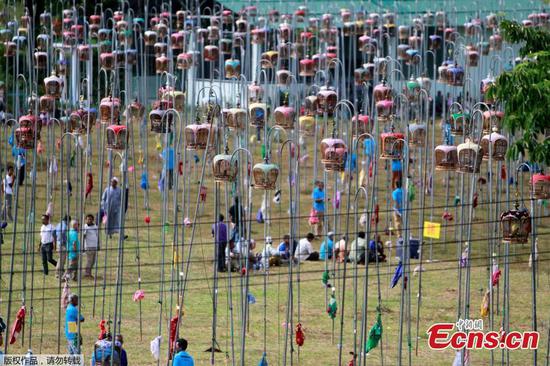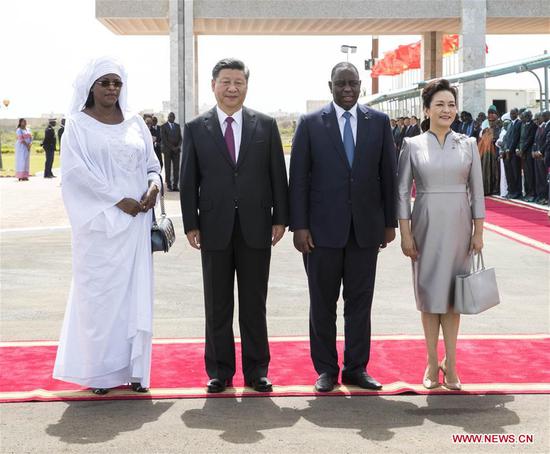
Job seekers share employment information at a job fair in Dongying, Shandong Province, on July 15. (Zhou Guangxue/For China Daily)
Gov't invests social security funds to add money, protect solvency
China's urban unemployment rate fell to 3.83 percent in June, the lowest since 2002, the top human resources authority announced on Monday. The country's employment structure also improved.
Officials and experts attributed the development to a steady economic rise and a higher-quality labor force.
"There were 7.52 million new urban jobs offered in the first half of the year, up 170,000 from a year earlier," said Lu Aihong, a spokesman for the Ministry of Human Resources and Social Security.
Lu said the ratio of jobs to job hunters was 1.23-to-1, a rise of 0.12 jobs per worker from the same period last year.
"That means the job supply continued to exceed the number of job seekers," he said.
Yang Yiyong, director of the Society Development Institute, part of the National Development and Reform Commission, said the positive employment picture over nearly two decades is the result of rapid economic growth.
"Better economic growth means more business and more orders for companies. So that requires more factories and machines to do the work, which of course results in greater demand for workers to do the jobs," he said.
Lu said the employment structure continued to be optimized due to more jobs from tertiary industries. According to the ministry, people employed in tertiary industries accounted for 44.9 percent of workers in 2017, compared with 34.6 percent in 2010.
Yang said more people have received higher education in recent decades and so the country's labor quality has obviously improved. As a result, more people are qualified for jobs in tertiary industries.
"But now there are increasing numbers of retired people over age 60 due to the aging population, possibly bringing shortages in the labor force," he said.
To cope with the increasing demand for pensions, the ministry is investing pension money in equity funds, bank deposits and nationally backed securities, such as bonds.
"Up to the end of June, 14 provincial areas entrusted the National Council for Social Security Fund to manage the pension pool of 585 billion yuan ($86 billion)," Lu said, "and 372 billion yuan of it has been invested. The rate of return on investment last year was 5.23 percent."
China's Labor Law stipulates that companies must contribute the bulk of payments toward five types of social security for employees, including injury, medical and endowment insurance. Workers pay a minimal amount.
According to the ministry, investments can expand funding sources and ease the financial burden of companies and governments as the population ages. It vowed to guarantee the social security fund's solvency.


















































